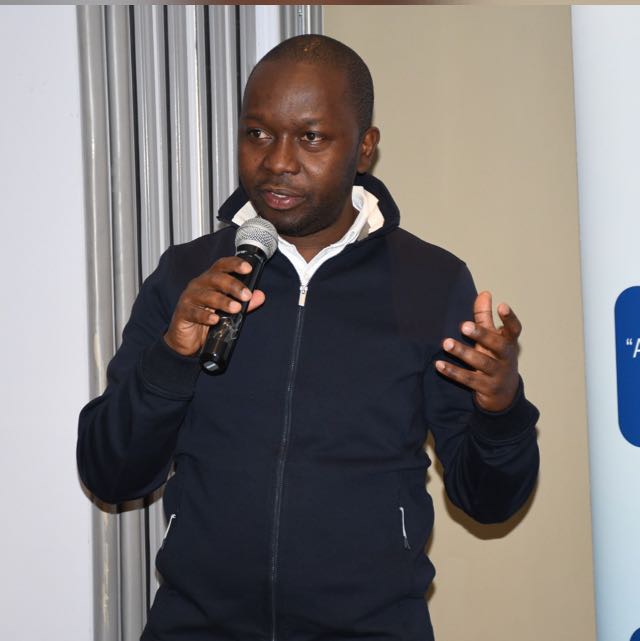Background of Case Studies
Supported by the Secretariat of the Basel, Rotterdam and Stockholm Conventions (BRS), Women Engage for a Common Future (WECF) has carried out gender-focused studies in Kenya working in partnership with Center for Environment Justice and Development (CEJAD), with ongoing studies in Rwanda and Zambia. These efforts have highlighted how women and men experience different impacts from hazardous chemicals and waste, and they have identified practices that can be scaled to advance both gender equality and sound chemicals governance.
Why Gender Dimensions Matter
The studies set out to explore three fundamental questions: how health impacts differ for women and men; how occupational and household roles shape exposure; and how leadership practices can support substitution or elimination of hazardous substances.
The findings were striking. Exposure pathways in chemicals and waste management are deeply gendered. In Kenya, for instance, informal plastic pickers and recyclers—many of whom are women—are exposed to brominated flame retardants and other toxic substances due to limited access to protective gear or adequate healthcare. Women are often concentrated in sorting or collection roles, making them more vulnerable to unsafe working conditions. In contrast, Rwanda’s experience shows how structured support, protective measures, and formal recognition of women workers can significantly reduce these risks.
Policy Context in Kenya and Rwanda
Kenya’s constitutional guarantee of gender equality, reinforced by the National Gender Equality Act (2011) and the 2019 National Policy on Gender and Development, provides a strong legal basis for gender integration. Article 42 further anchors the right to a clean and healthy environment, enabling gender considerations to be embedded in National Implementation Plan (NIP) updates under the Stockholm Convention. Importantly, Kenya’s Sustainable Waste Management Act (2022) recognizes the role of informal waste pickers, creating new opportunities for women’s participation in chemicals and waste governance.
Rwanda, meanwhile, has institutionalized gender equality more comprehensively. Its Constitution mandates at least 30% women’s representation in decision-making—a goal the country has surpassed, with women holding nearly two-thirds of parliamentary seats. Gender equality is not just a constitutional promise but is enforced through mechanisms such as MIGEPROF, the Gender Monitoring Office, and the National Women’s Council. These institutions apply tools like gender budgeting and provide incentives for the private sector to integrate gender into operations. In the waste sector, women plastic collectors now benefit from formal licensing, protective equipment, and health insurance—showcasing how policy can translate into tangible improvements on the ground.
Challenges on the Ground
Despite these gains, several challenges persist across the region. Informal waste workers, particularly in Kenya, continue to operate without protective measures, in sharp contrast to Rwanda’s regulated approach. The “care economy” also weighs heavily on women: unpaid domestic responsibilities limit their ability to participate in decision-making or training opportunities. In addition, many policies addressing workplace safety remain voluntary, leaving women exposed to harassment, unsafe conditions, and gender-based violence without meaningful recourse.
Emerging Good Practices
Amid these challenges, promising practices are emerging. Women entrepreneurs are leading small recycling and circular economy initiatives, creating both livelihoods and environmental benefits. Agroecological farming is gaining traction as an alternative to pesticide-heavy practices, supported by targeted training programs. Investments in biogas systems are preventing open burning of waste, reducing both pollution and health risks.
Equally important are institutional innovations. Rwanda’s system of licensing and protecting women plastic collectors has provided a replicable model for the region. Gender audits and budgeting mechanisms have created accountability within government ministries. Kenya’s formal recognition of waste pickers in national law is another step toward legitimizing and protecting informal workers, many of whom are women.
Towards Gender-Responsive NIPs
The lessons from Kenya and Rwanda demonstrate that gender mainstreaming in chemicals and waste management is both achievable and necessary. Moving forward, National Implementation Plans under the Stockholm Convention can embed gender dimensions more systematically by ensuring that interministerial committees include women representatives from both formal and informal sectors, by expanding sex-disaggregated data collection, and by closing persistent gaps in laboratory analysis.
Equitable access to finance and resources for women-led initiatives will be crucial. Likewise, embedding gender equality into law—and ensuring enforcement, rather than relying on voluntary measures—can guarantee rights and protections for women workers. These steps will not only make NIPs more inclusive but also more effective in reducing risks from hazardous chemicals.
Gender dimensions are not peripheral—they are central to protecting health, reducing risks from hazardous chemicals, and building sustainable societies.
This blog post was developed drawing on insights from the GGKP regional workshop for Europe, Asia and Africa “Mainstreaming Gender in National Implementation Plans under the Stockholm Convention” held on 27 August 2025. As part of the Global NIP Update project (GEF ID 10785), funded by GEF and led by UNEP, this workshop shared practical insights on integrating gender into NIPs, featuring experiences from the national project experts, civil society and community groups.
To learn more about the Global NIP Update project, visit Global NIP Update | Green Policy Platform
For a deeper dive into the GGKP gender workshop focused on Europe, Asia and Africa, you can access the full recordings and materials here: https://www.greenpolicyplatform.org/webinar/regional-workshop-europe-asia-and-africa-mainstreaming-gender-national-implementation-plans
To learn more about the case study "Gender, Chemicals and Waste" in Kenya and Tunisia: https://www.brsmeas.org/Implementation/Gender/Countrycasestudies/KenyaandTunisia/tabid/9563/language/en-GB/Default.aspx
To learn more about the “Gender Equality Inclusive Engagement in the Plastic Waste Management Sector” project in Rwanda and Zambia: https://www.wecf.org/gender-equality-inclusive-engagement-in-the-plastic-waste-management-sector/
Authors:
 |
Griffins Ochieng, Executive Director, Center for Environment Justice and Development (CEJAD) |
 |
Soomin Bae, Knowledge Management Support Consultant, GGKP/GGGI
|



